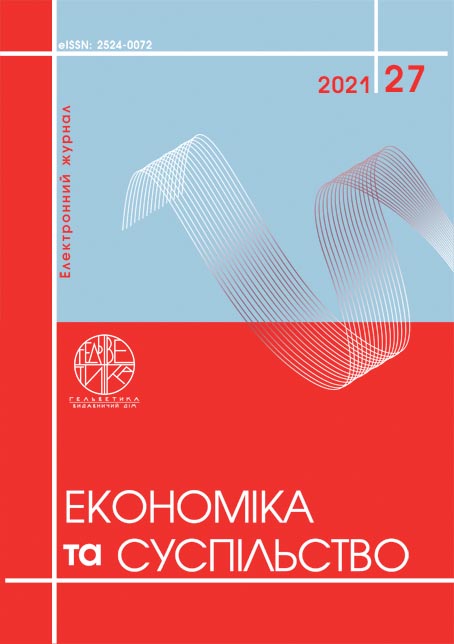HISTORY OF TOURISM DEVELOPMENT AND ITS INFLUENCE ON GLOBALIZATION PROCESSES
Abstract
In recent years, the tourism industry has become an important social and political phenomenon that affects the economies of many developed countries. Modern tourism, without a doubt, integrates almost all industries. Almost a billion tourist trips are made in the world every year. Tourism is definitely one of the most lucrative industries. Tourism accounts for up to 10% of total EU GDP. In the developed countries of the world, tourism contributes to the socio-economic development of countries. Tourism is the best way to experience a different culture. The humanitarian significance of tourism lies in the use of its opportunities for personal development, its creative potential, and expanding the horizon of knowledge. The pursuit of knowledge has always been an integral part of man. Combining recreation with the knowledge of the life, history and culture of another nation is one of the tasks that tourism is fully capable of solving. Seeing the world with your own eyes, hearing, feeling are important parts of the restorative function of tourism, they carry great humanitarian potential. Acquaintance with the culture and customs of another country enriches the spiritual world of a person. Since international tourism is a reflection of socio-economic relations in the life of individual countries and at the same time an integral part of international relations, the necessary prerequisites for organizing and managing the entire range of tourist and excursion activities both within states and at the international level arise. The study of the history of tourism development and its impact on globalization processes has been carried out. It is analyzed that the current state of tourism development is characterized by the fact that many countries focus on improved systems of domestic tourism. Domestic tourism contributes to the stable position of the national economy. The purpose of the study is to characterize the main historical aspects of tourism development. Within each country, domestic tourism contributes to a deep awareness of the community of interests and the development of activities that are favorable for the country's economy as a whole.
References
Butler, R.W., (1980). The concept of a tourism area cycle of evolution: Implications for management of resources. Canadian Geographer, 24(1): 5-12.
Dawson, D., F. Fountain and D.A. Cohen, (2011). Place marketing and wine tourism: Creating a point of difference and economic sustainability for small wineries, 6th AWBR International Conference. Bordeauz Management School, BEM, France, June 9-10, 2011.
Govers, R., F.M. Go and K. Kumar, (2007). Promoting tourism destination image. Journal of Travel Research, 46(1): 15-23.
Haywood, K.M., (2006). Evolution of tourism areas and the tourism industry. In R.W. Butler. (Ed.) The tourism area life cycle: Applications and modifications. Clevedon: Cromwell Press. 1: 51-70:3-12.
McKercher, B. and H. Du Cros, (2002). Cultural tourism: The partnership between tourism and cultural heritage management. New York: The Haworth Hospitality Press.


